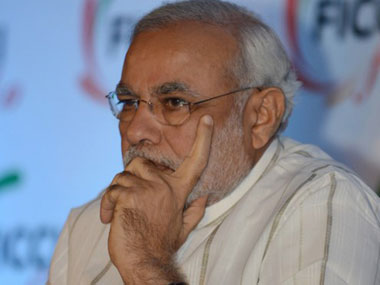Their 18-hour workdays, cancelled holidays and the now long forgotten afternoon golf sessions have put New Delhi’s bureaucrats on the edge ever since Narendra Modi took charge as prime minister. Now, two months since he asked his top bureaucrats to meet him directly with any serious concerns they may have, his government has amended the All India Service (Conduct) Rules of 1968 to formulate a specific 19-point guideline for them. [caption id=“attachment_1652989” align=“alignleft” width=“380”]  Narendra Modi. AFP[/caption] According to a report in The Economic Times, these 19 commandments contain specific instructions to civil servants to take decisions on merit alone, maintaining “political neutrality” at all times. The instruction gains significance in the light of the recent rush to purge key government offices of UPA-era babus. The rest of the 19 commandments range from maintaining high ethical standards to devotion to duty. There are express directives against bureaucrats allowing themselves to be under any obligation to any individual or organisation which could impact the execution of his official duties. Another new provision is that all conflict of interest situations must be specifically avoided and resolved. The new conduct rules, according to The Indian Express, say that IAS, IFS and IPS officers must “declare any private interests relating to their public duties and take steps to resolve any conflicts in a way that protects the public interest”. There are also instructions to not misuse their position, not derive financial or material benefits for themselves through their official positions, ensure courtesy in dealing with the public, take decisions solely in public interest, refrain from any act that is against any law, and maintain confidentiality in the performance of his official duties as required of them. That the prime minister has been keenly interested in the image of the civil service and in the integrity and character of his top babus is by now well known. If he has told his MPs to focus on “ aachaar, vichaar and vyavahaar” (high behaviour, thinking and action), he has also told his bureaucrats he expects their conduct to be exemplary, arriving himself for surprise checks of offices besides taking a keen interest in appointments to key posts. Writing in The Hindustan Times, Sanjoy Narayan makes this observation about the new babu culture in New Delhi: “Narendra Modi’s government is barely two months old and this could be just a honeymoon period but anyone who visits the ministries in New Delhi’s North or South Block or elsewhere is struck by a new energy that abounds: ministers and bureaucrats come to work sharp and early; decisions are taken quickly; files don’t pile up; and there’s a markedly low level of idling. Everyone says it’s a culture that begins at the top, referring to Modi’s reputation of being a workaholic who often turns up at his office in South Block before 9 am and works late. “It’s a fast and furious work culture,” quips a government babu, “and we’re all on our toes.” The new commandments to the babus are more of the same, a wide ranging list of what’s expected from a force that the prime minister clearly wants to be highly effective, professional and unimpeachable.
Narendra Modi has in the past made it clear he wants the IAS force to rectify its image. The new amendments to the conduct rules are more in that line of thinking.
Advertisement
End of Article


)
)
)
)
)
)
)
)
)



